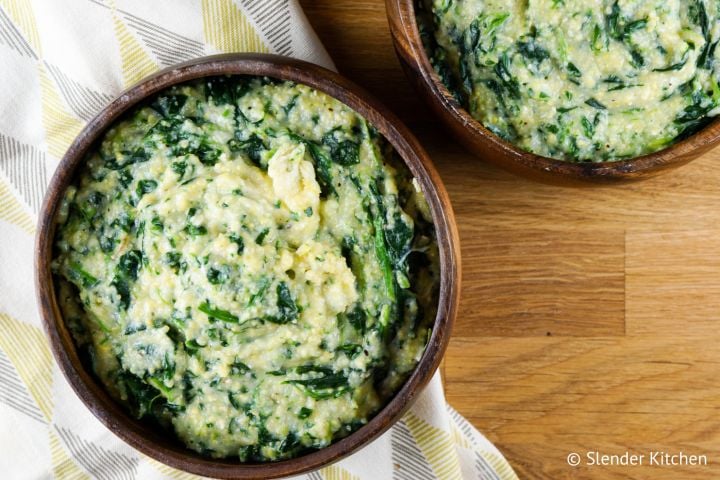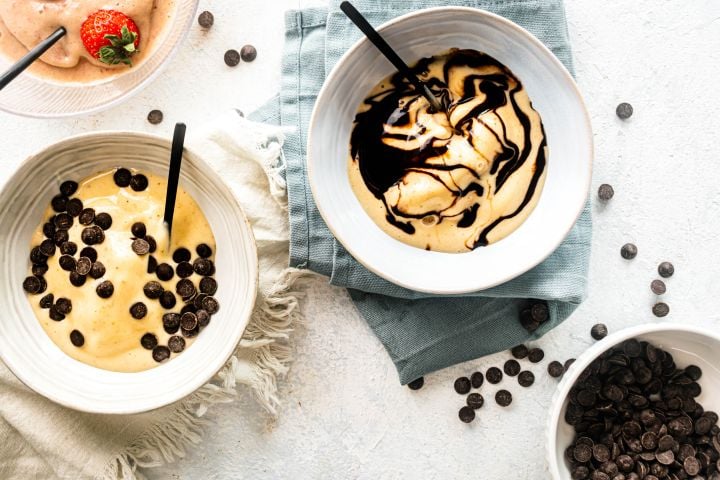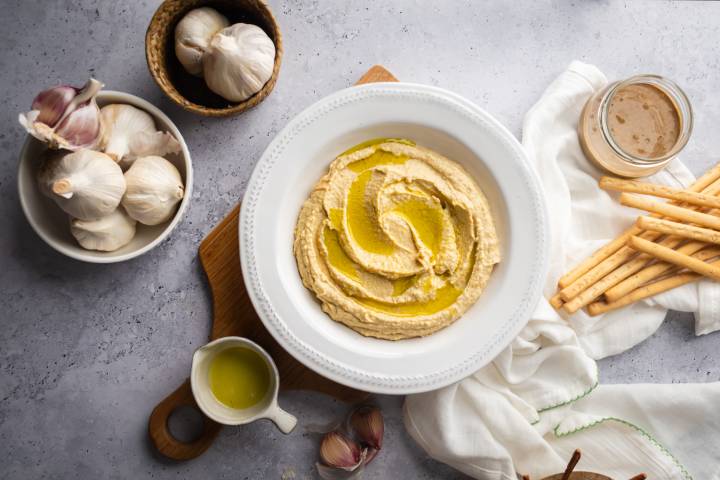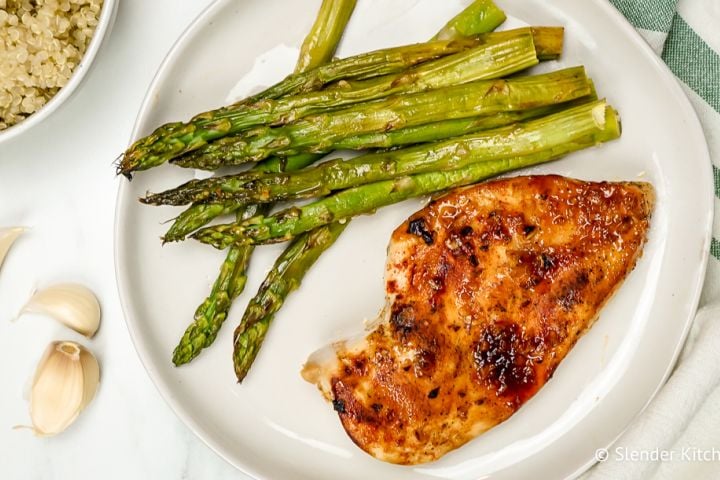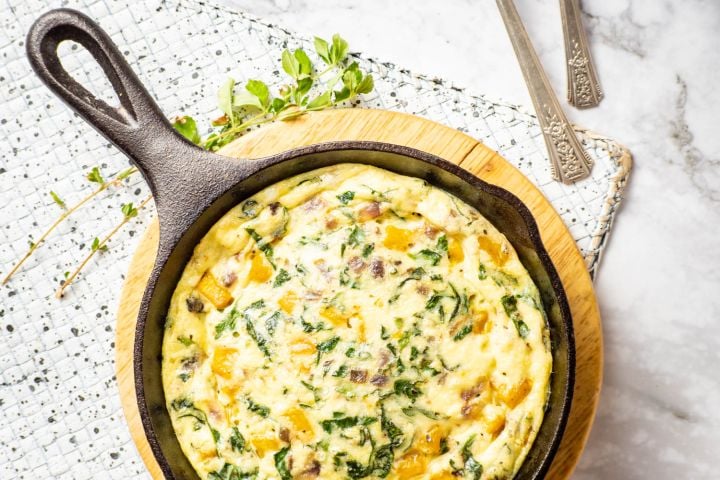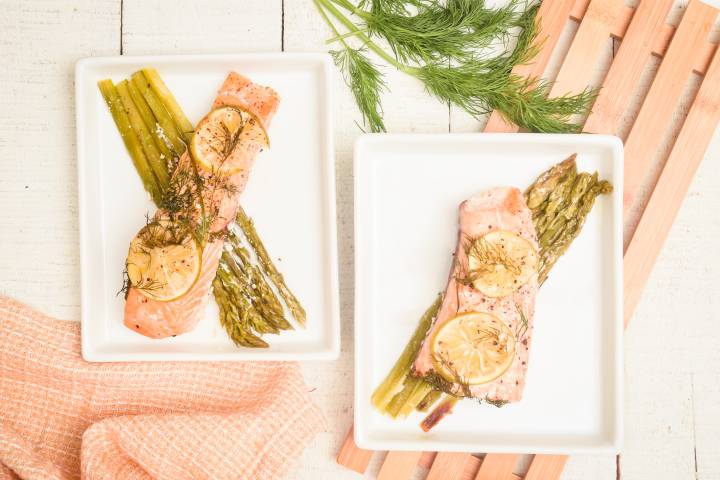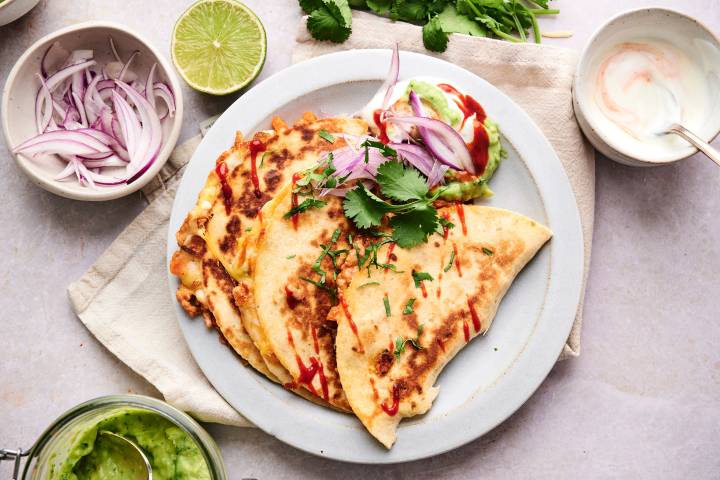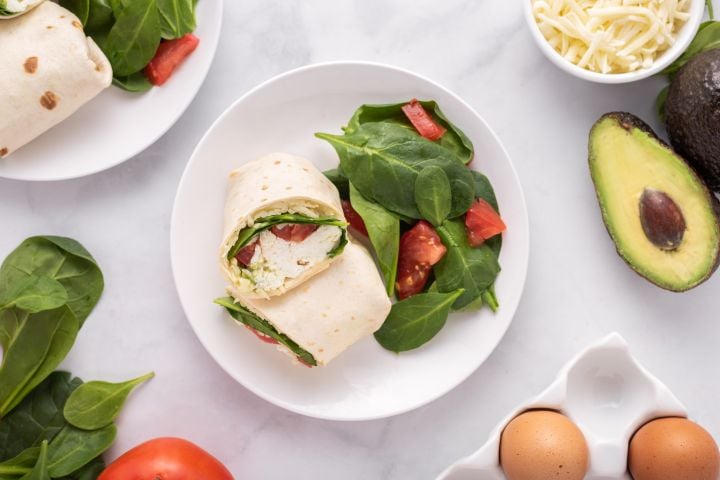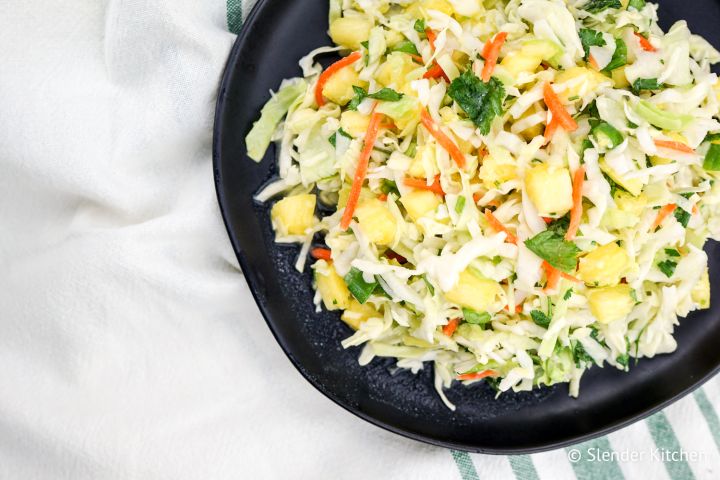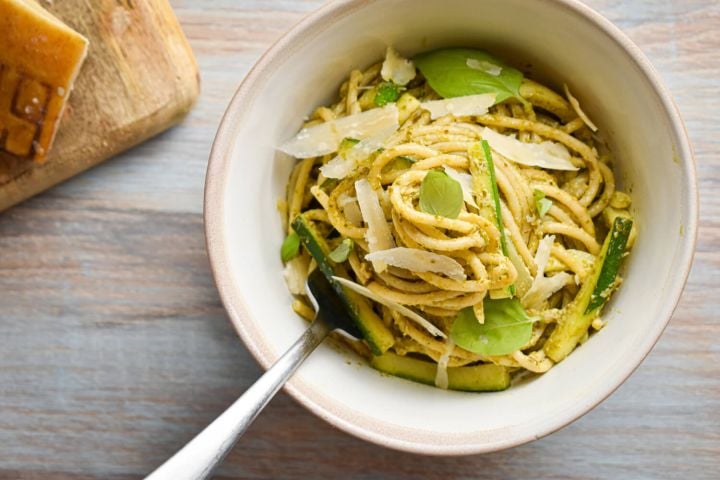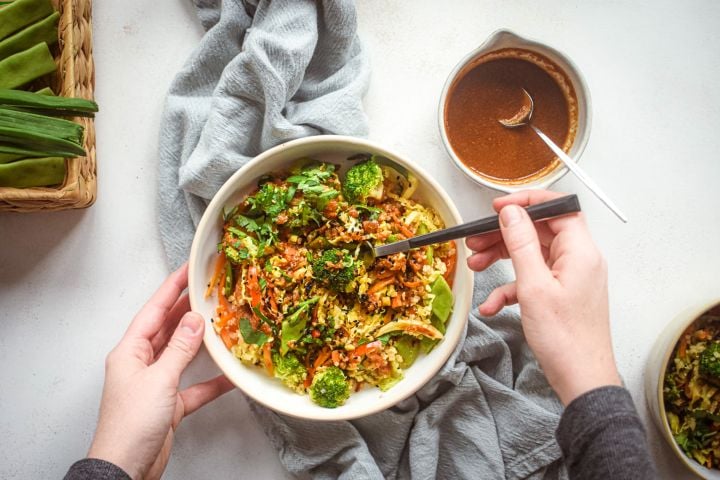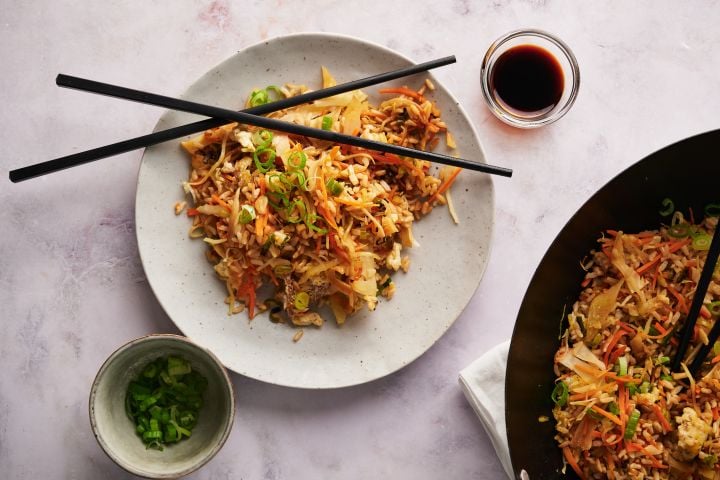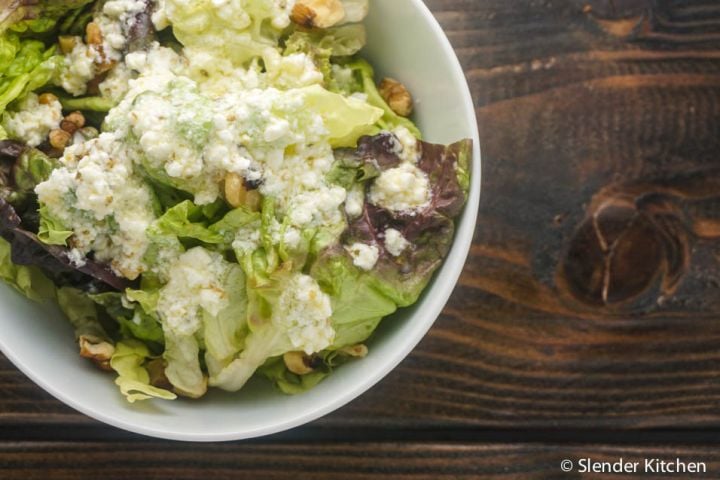Blackened Mahi Mahi
Blackened Mahi Mahi is made with homemade blackening seasoning and seared to perfection in a piping hot skillet. Serve this dish alongside rice or pasta and your veggie of choice for an unstoppable dinner that’s bound to be a winner!
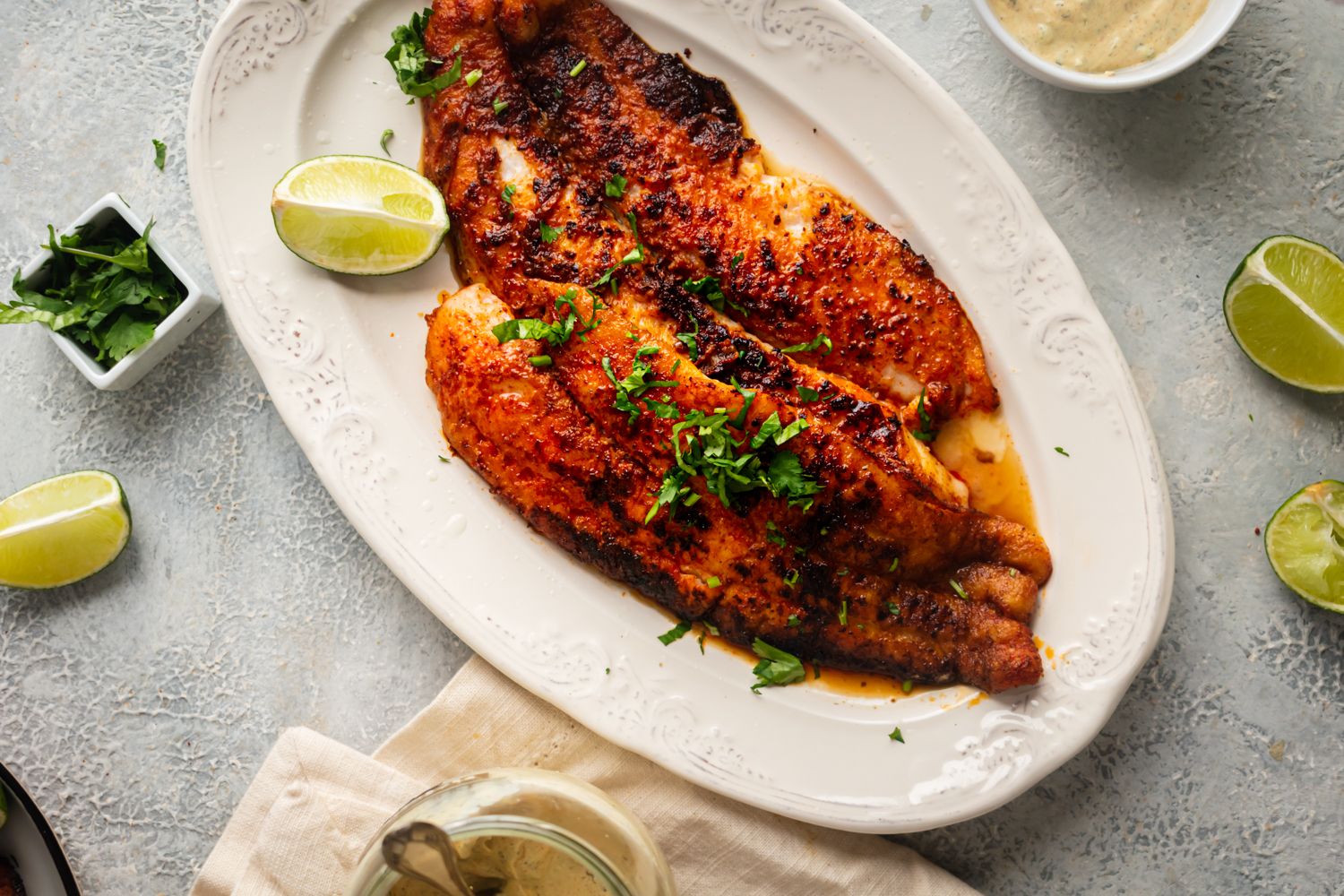
Today I’m sharing one of my all-time favorite fish recipes, Blackened Mahi Mahi. It’s one of my go-to 10-minute dinner recipes for busy weeknights and tastes so good that I never grow tired of it.
This easy mahi mahi recipe pairs wonderfully with just about anything you’re in the mood for—from pasta and potatoes to salads and grain bowls. It also makes amazing Blackened Fish Tacos.
One of the most common questions that I get about blackened recipes is ‘does blackened mean burnt?’ The answer is no! Absolutely not. Quite the opposite, blackened fish is seared to perfection with an amazing combination of spices that give the dish its signature dark color and tons of mouth-watering flavor.
Now, if this is your first time coming across a blackened fish recipe, you might be feeling a little nervous. Cue all those horror stories of smoke detectors going off, the house filling with smoke, and a seriously burnt pan. Totally not talking from personal experience…. Ha! Don’t worry, blackened fish is easier to make than you think.
You can pair this dish with rice and veggies, serve it over pasta, or chop it up and transform it into fish tacos. There are tons of options to choose from, so get your skillet ready and let’s get started! Mahi Mahi lovers should also check out this Lemon Pepper Grilled Mahi Mahi.

What is Blackened Fish?
Blackening is a cooking technique that involves coating your food in melted butter, dredging it in a flavorful blend of herbs and spices, then searing it quickly on a skillet over high heat. The technique is most commonly associated with Cajun cuisine and was first made popular in New Orleans.
Most people use meat like chicken or fish, but the blackening method can also be done with tofu or vegetables, depending on your preference. Blackened fish might look burnt due to the spices getting charred, but this charring process actually enhances the flavors of the various spices, making the dish insanely delicious. It’s a quick and delicious way of cooking meat or veggies that’s bound to impress any foodie.
What You’ll Need
To bring this drool-worthy dish to life, you will need the following key ingredients:
- Mahi mahi. Firm and lean, the subtly sweet taste of the mahi mahi always delivers! You can use fresh filets or frozen fish; either one works. You could also swap it out for another white fish like cod, bass, or grouper.
- Melted butter. An essential for any blackening recipe. The butter helps the spices stick to the fish, enhances the flavor, and helps to achieve that charred color.
- Avocado oil. This keeps the fish moist and prevents the butter from burning. I like using avocado oil because of its ability to stand up to high heat, but you can use olive oil or canola oil if needed.
- Blackened seasoning. You can’t go wrong with my Homemade Blackening Seasoning! It’s a flavorful blend made with spices like chili powder, garlic powder, and smoked paprika. I love making my own because you can control exactly what goes into it, but you could also use a store-bought blackened seasoning if you want to save a little time.
Recipe Notes
Want to make the best blackened fish? Here are some recipe notes and tips to help you impress your friends:
- When it comes to blackening any protein, you want your pan to be as hot as possible to avoid sticking and ensure a crispy crust. I recommend using a cast iron skillet or any thick-bottomed skillet for the best results. Avoid using nonstick pans.
- Rinse and dry the fish carefully with a paper towel before you start rubbing it with butter and spices. Starting with dry fish is essential to getting it nice and crispy.
- While I do love my fresh herbs, you’ll want to skip them for this one. They can’t stand the intense heat, so you’ll just end up with bitter-tasting fish instead. If you want to add fresh herbs to the dish, wait until just before serving the mahi mahi.
- The best way to tell when the fish is done is to try flaking it with a fork. If it flakes easily and has turned opaque, then it’s done. Mahi mahi tastes best when served medium or medium rare, so it’s okay if it’s still slightly pink.
Ways to Serve Blackened Mahi Mahi
This blackened fish recipe is bursting with tons of flavor all on its own, so it’s guaranteed to be the star of any meal. I love serving it with salads, grain bowls, burritos, tacos, and wraps. If you need some inspiration, here are some of the best ways to serve blackened fish:
- Salads. With so many flavors, textures, and varying levels of heat, this is one meal pairing that you’ll definitely want in your weekly rotation. Try serving this fish in a simple salad like this Easy Arugula Salad or Easy Spring Mix Salad.
- Tacos. Make this dish the star of some incredibly delicious fish tacos by cutting it into bite-sized pieces and incorporating them into this Fish Tacos and Avocado Crema recipe. Or take a cue from these Blackened Steak Tacos and add some fresh pineapple salsa.
- Wraps. For an easy and healthy lunch, you won’t forget, pack this fish into a tortilla with some leafy greens, red onions, and fresh avocado. Yum!
- Grain bowls. Dress up the dish with some grilled veggies like asparagus or broccoli, then serve it alongside some rice pilaf or a bed of cauliflower rice for a delicious fish taco bowl.

How to Store Leftover Blackened Fish
Don’t expect any leftovers when you’re preparing this dish; it’s just that good. In the off chance that it happens, I recommend storing your leftover fish in an airtight container in the fridge for up to 2-3 days. When you’re ready to enjoy it, you can reheat it on a skillet until warmed through. You could also store it in the freezer for up to 3 months.
Frequently Asked Questions
Here are the answers to some of the most frequently asked questions about this blackened mahi mahi recipe:
How do you select the best mahi mahi?
You can always find fresh mahi mahi throughout the year, but I have a few tips to help you get the freshest ones. Look for ones that are pale pink and firm. Avoid any fish that’s going brown, especially around the edges. Also, don’t forget to give it the smell test. Fresh mahi mahi has an almost neutral smell and never smells too fishy.
Can I skip the butter?
You absolutely can! If you’re trying to avoid fat, skip the butter and replace it with any neutral oil like avocado oil or olive oil. You could also use a plant-based butter alternative to keep this dish dairy-free.
Why is my mahi mahi chewy?
If you feel as though your fish is on the chewy side, chances are that you’ve overcooked it. Blackening fish is a very quick cooking process, so you’ll only want to spend a few minutes on each side. As long as you follow this recipe, you should be good to go.
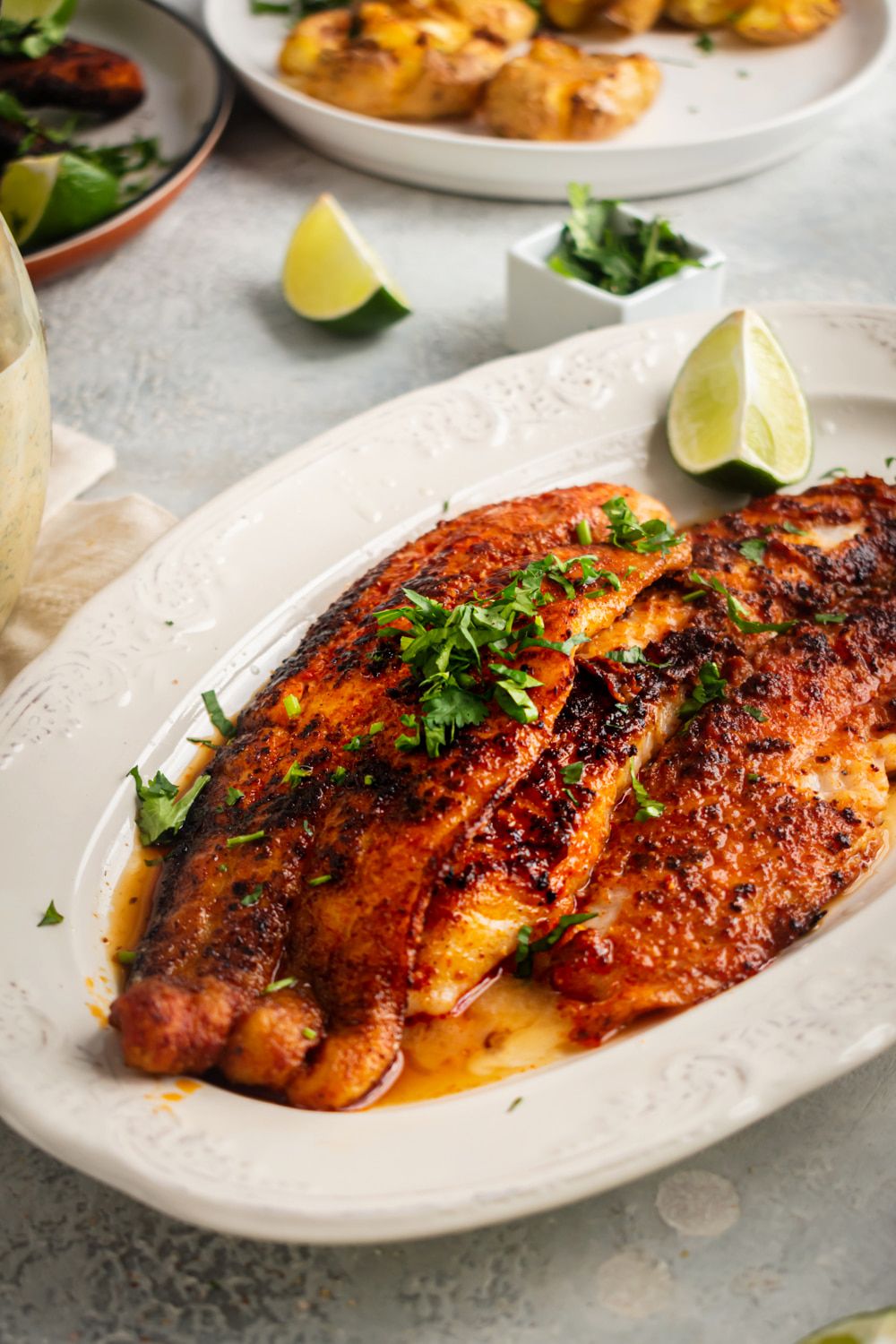
Blackened Mahi Mahi
- Download
- Send to your inbox
Ingredients
-
1.5 lbs mahi mahi (6-8 oz filets)
-
1 tbsp melted butter
-
1 tbsp avocado oil (or other high heat oil)
-
1 tbsp. smoked paprika
-
1 tsp. onion powder
-
1 tsp. garlic powder
-
1 tsp. kosher salt
-
1/2 tsp. dried thyme (or oregano)
-
1/2 tsp. black pepper
-
1/4 tsp. chili powder (or more)
Instructions
(Hide Media)Switch to prevent your screen from going dark.
Heat the butter and oil in a cast iron skillet over medium high heat. Once nice and hot, add the fish in a single layer. Cook for 2 - 4 minutes (depending on the thickness of filet) on each side and carefully flip to cook on the other side for 3-4 minutes. A fish spatula works best to keep the fish from breaking. Serve with fresh lemon or lime.
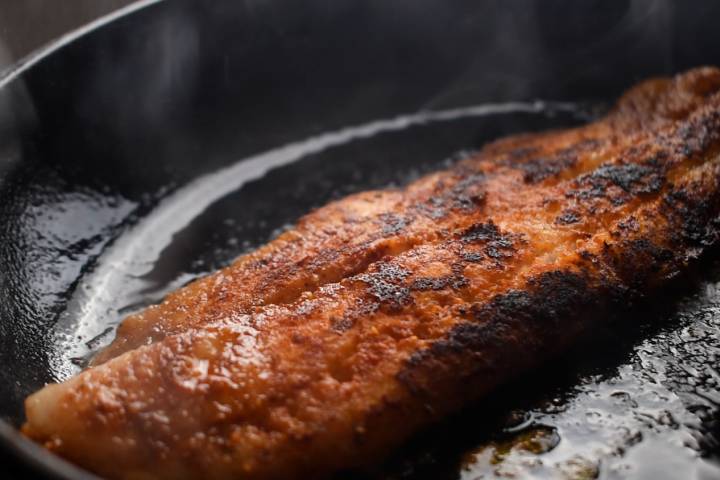
* Percent Daily Values are based on a 2,000 calorie diet. Your daily values may be higher or lower depending on your calorie needs.
The Nutritional Values provided are estimates only and may vary based on the preparation method.

Get delicious, healthy recipes delivered each week right to your inbox.

Snap a picture and show us what you made on Instagram or Facebook.
Tag us using @SlenderKitchen or #slenderkitchen.








